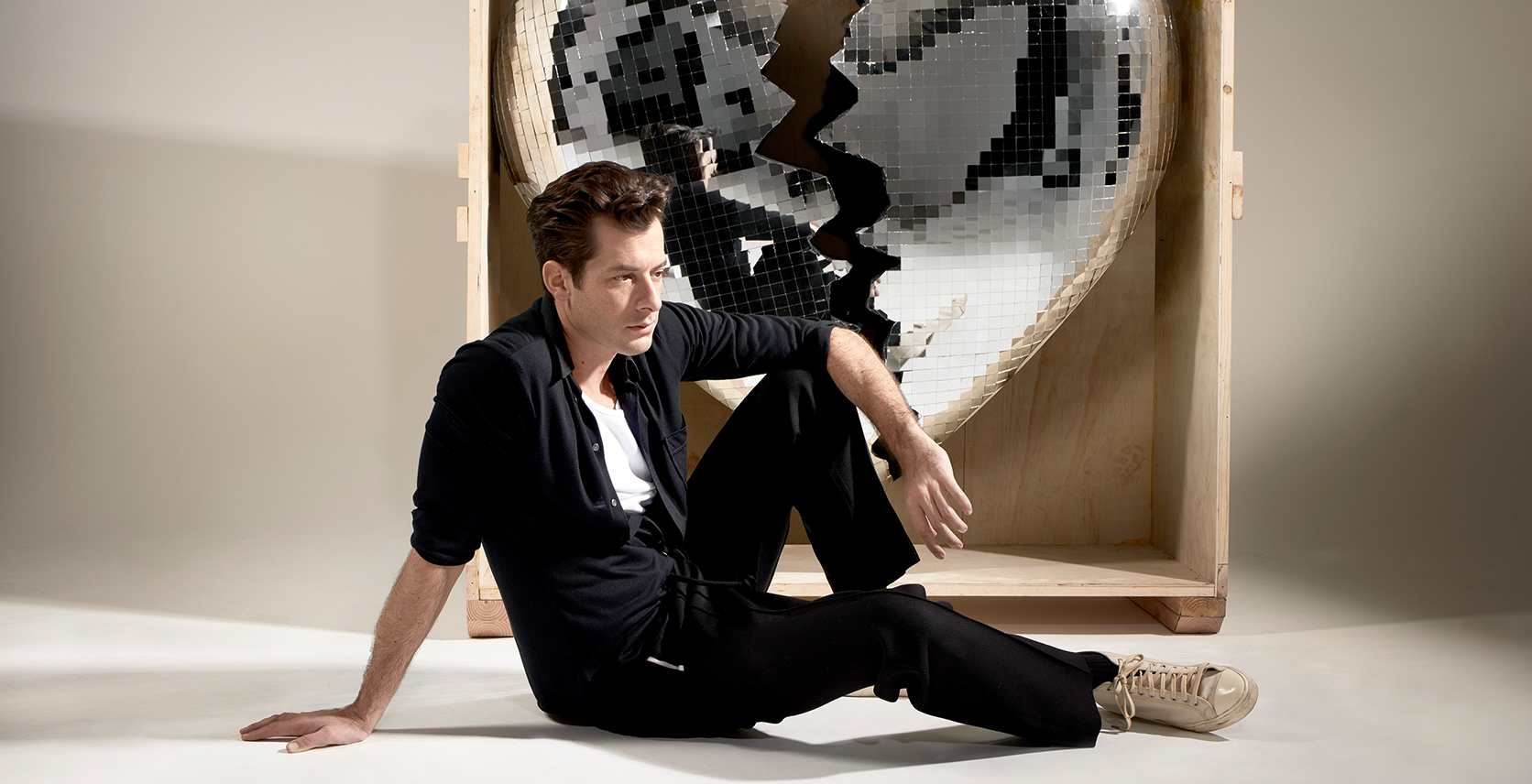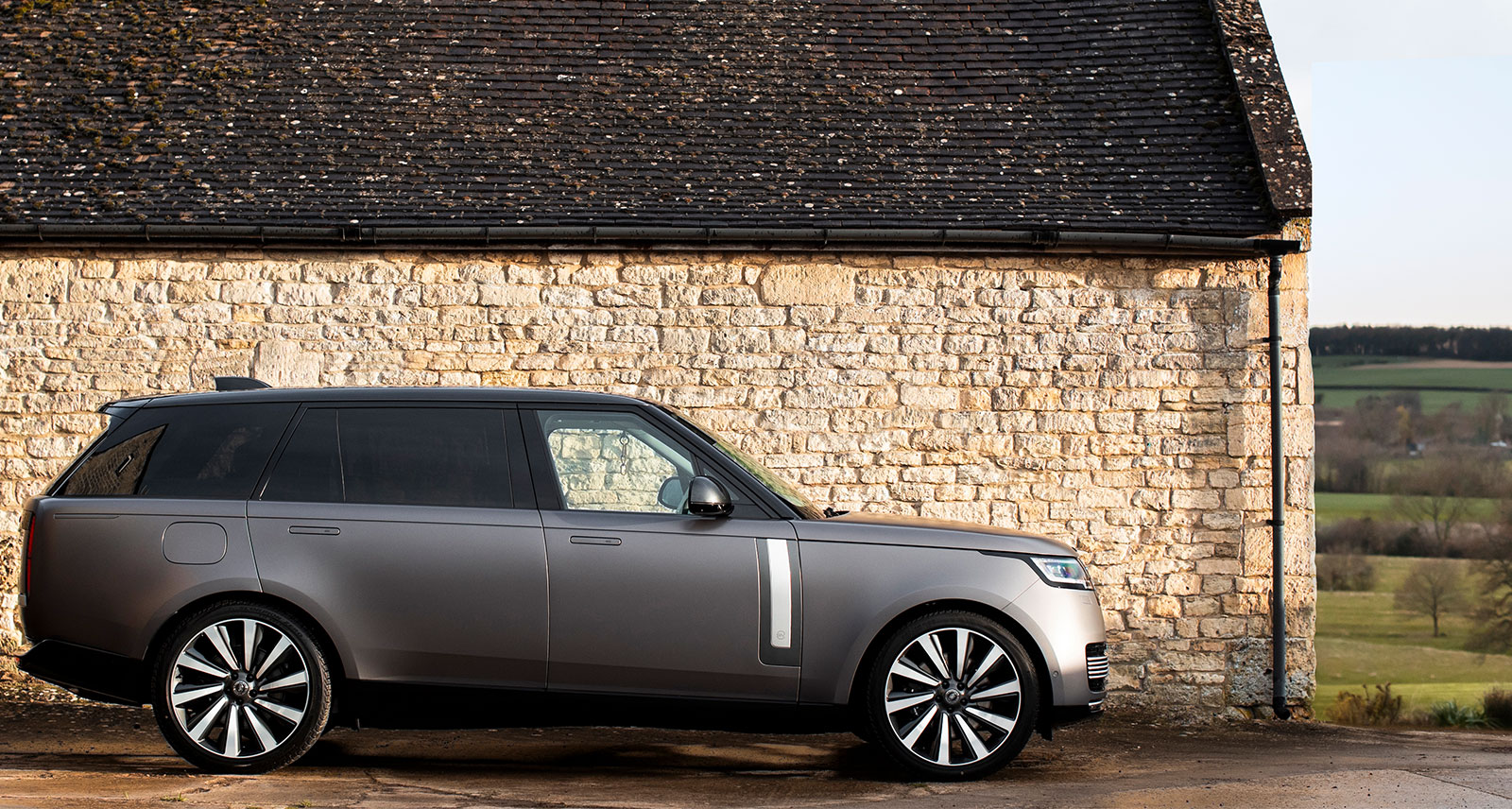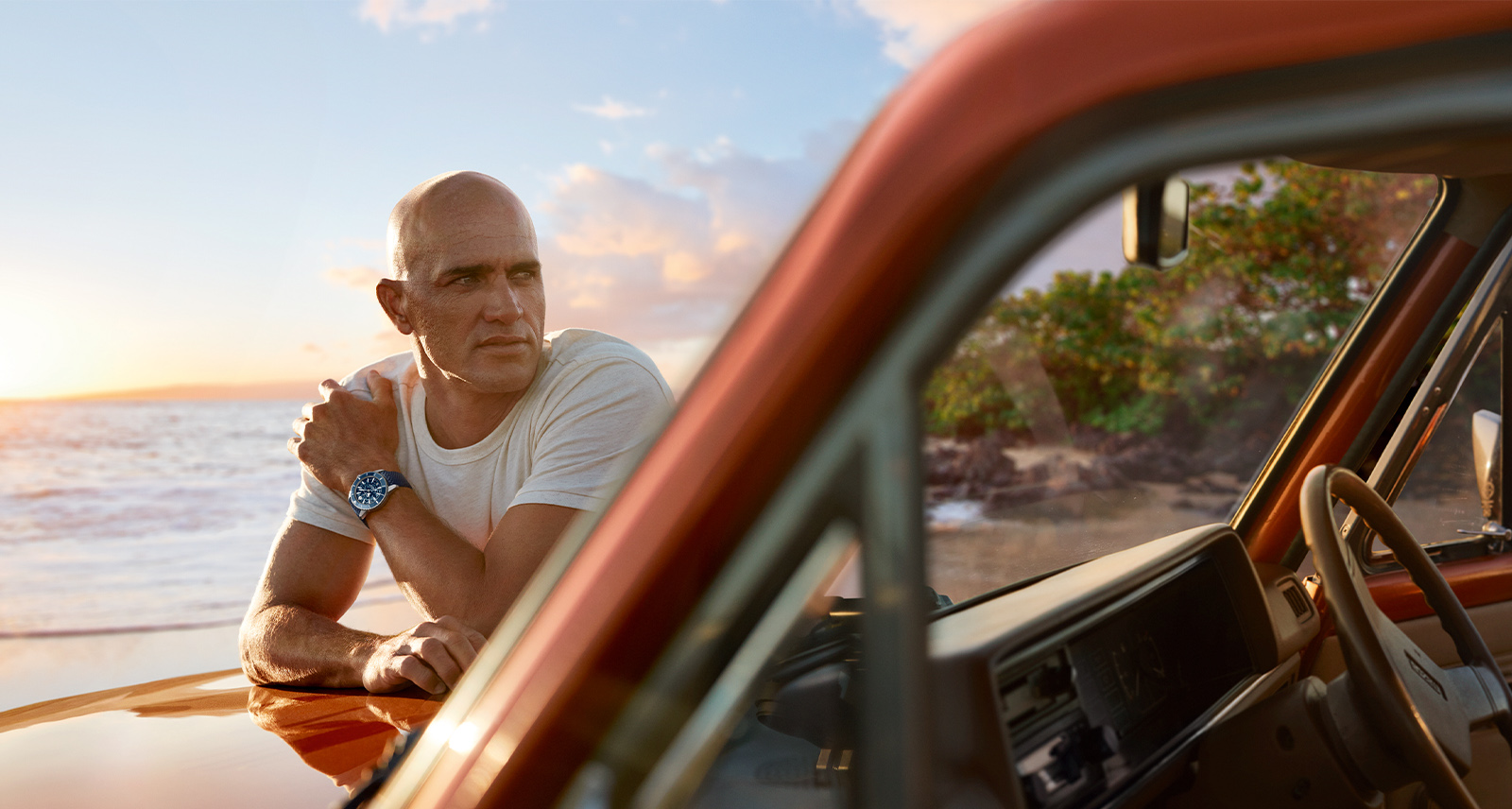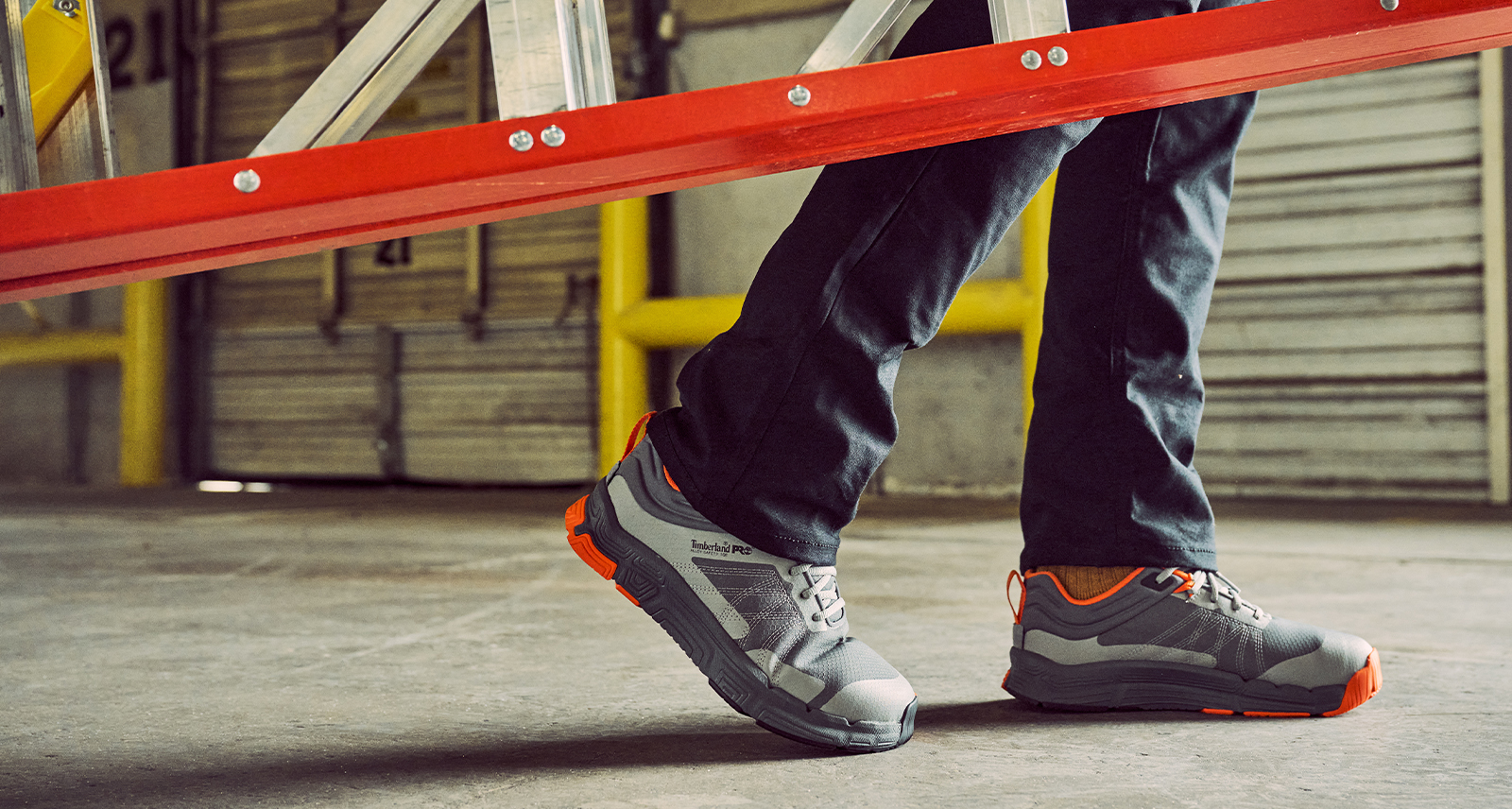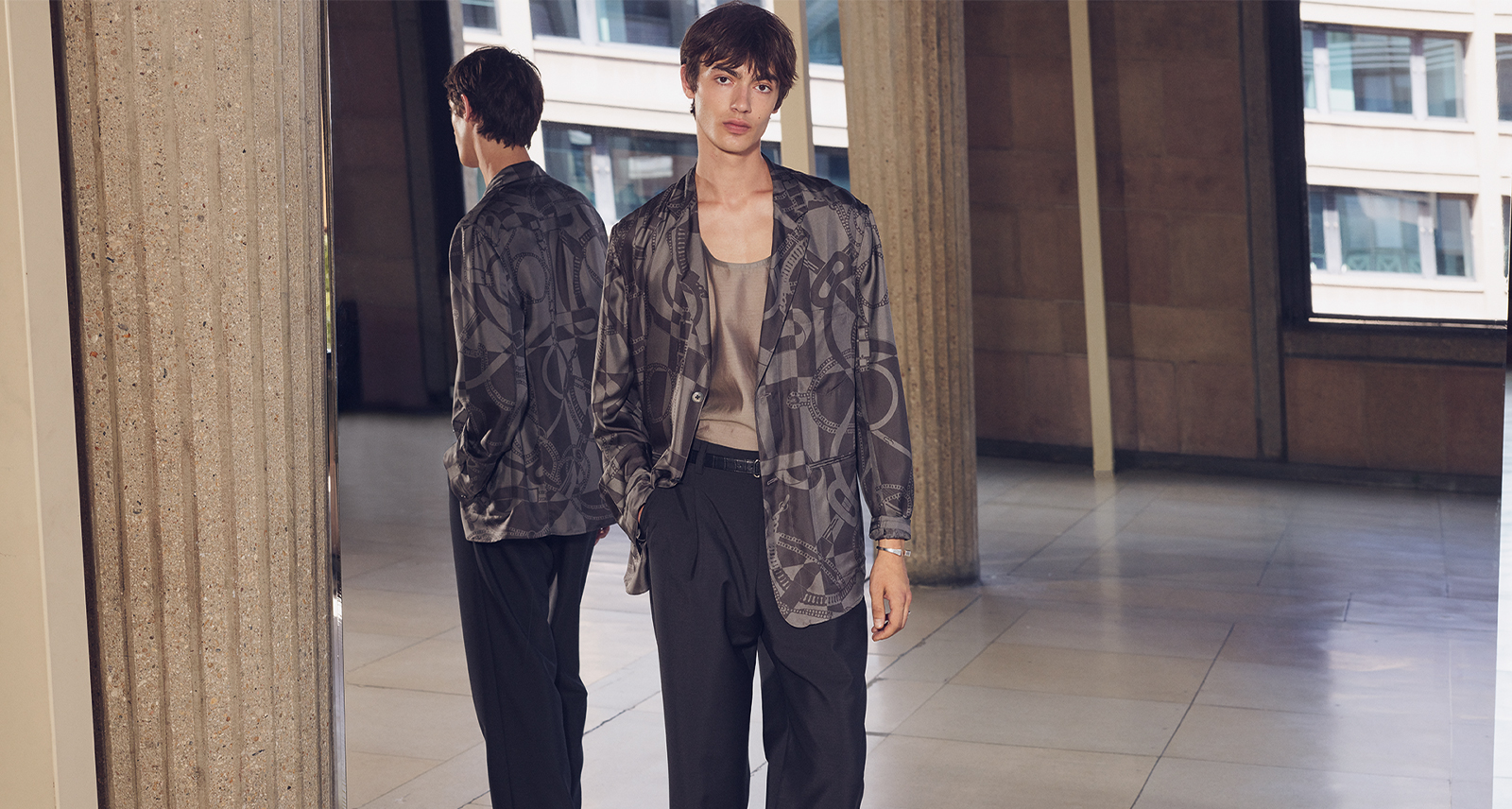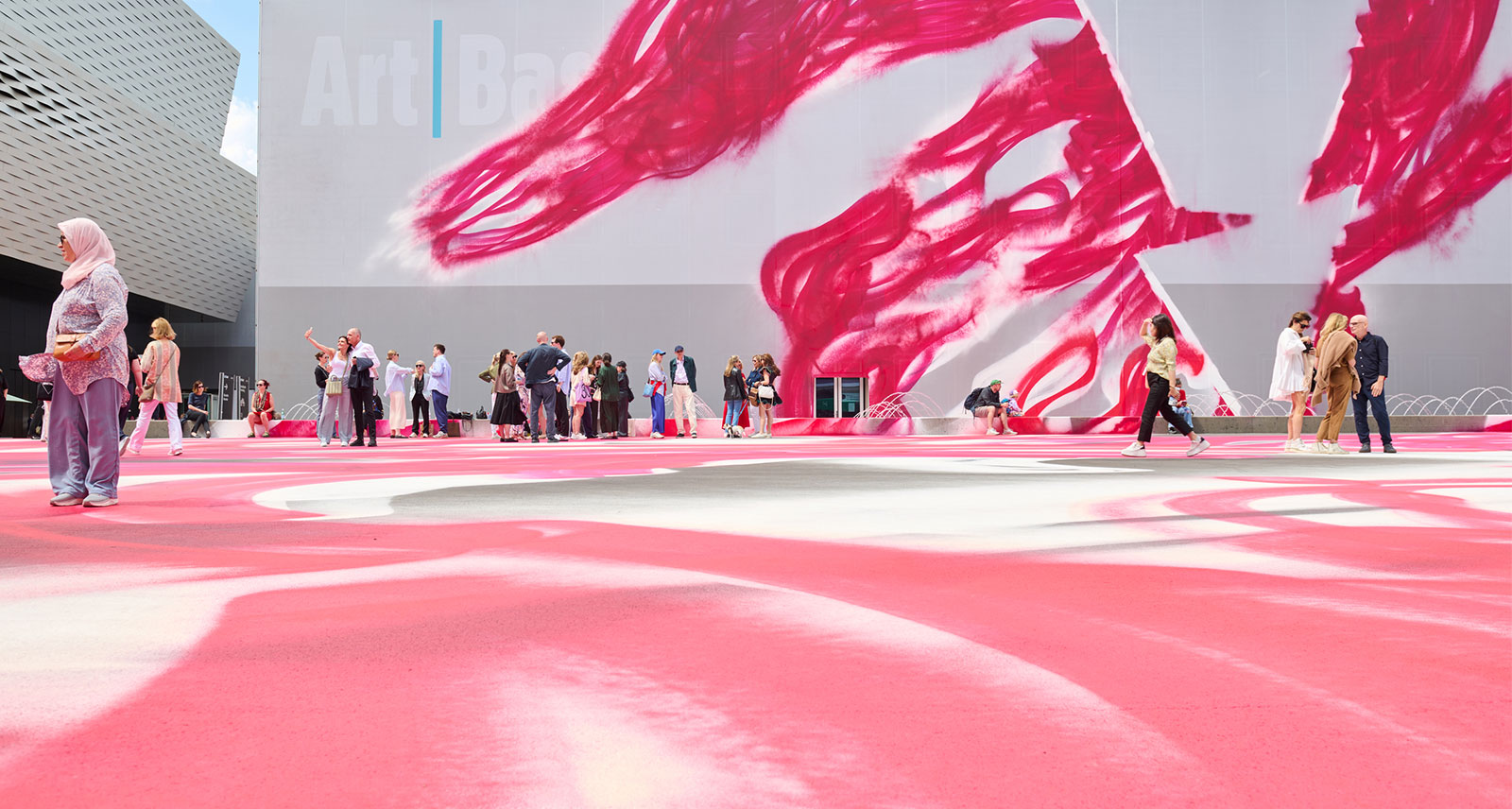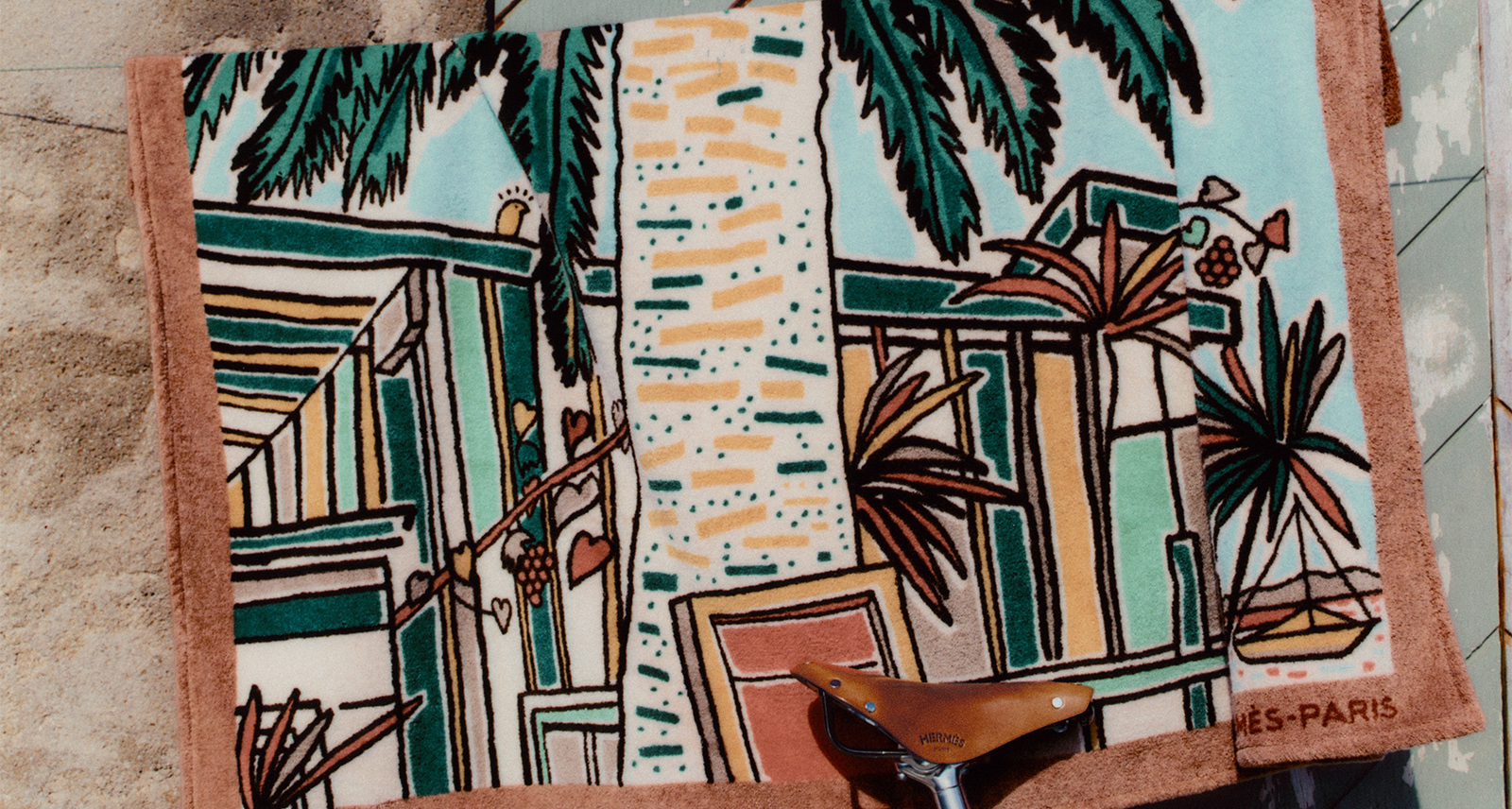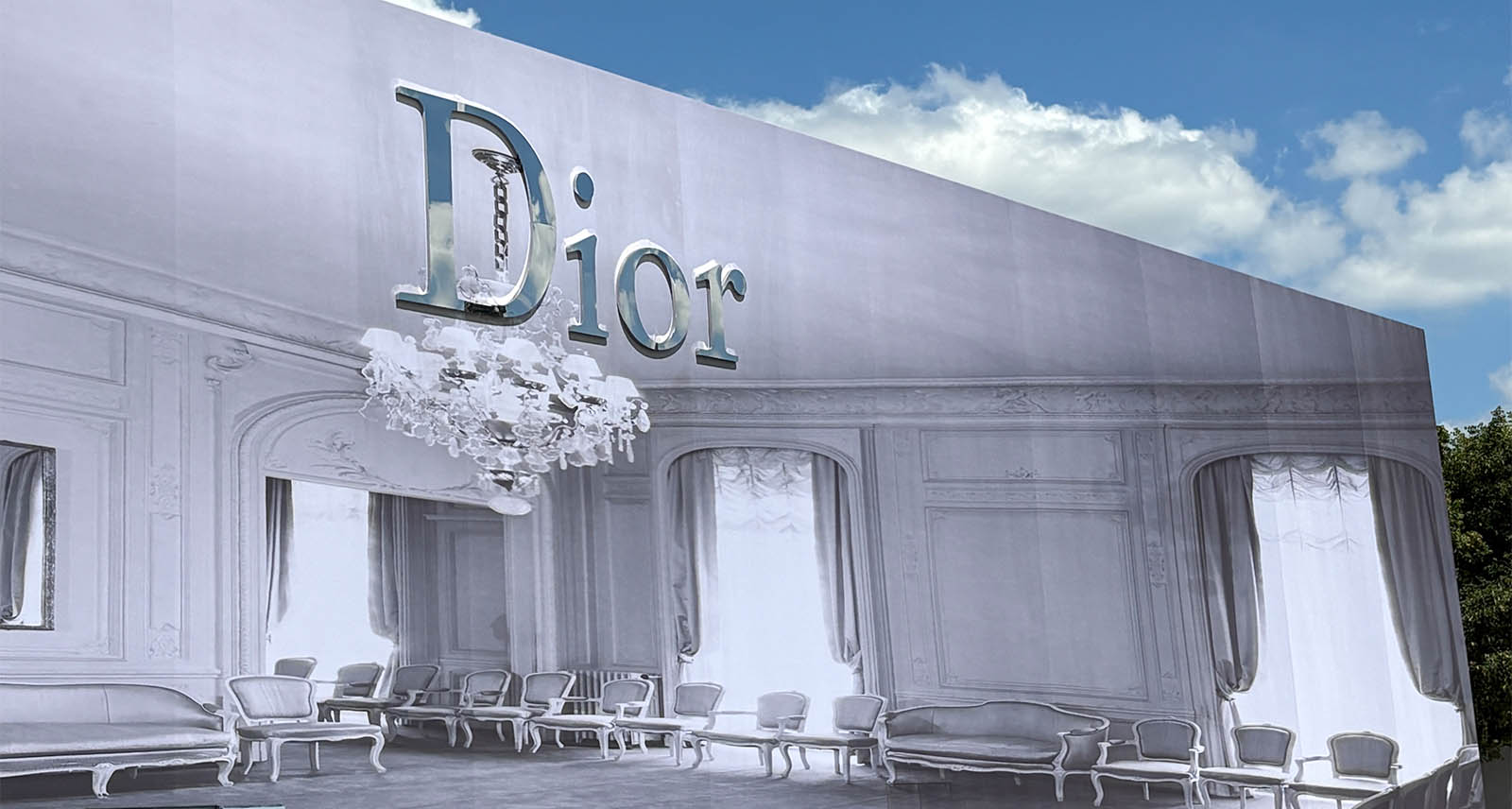Mark Ronson on Sad Music, Working with Howard Stern, and His “Gift” of a Divorce
The most effective way to smash through a plateau? Evidently, it’s getting a divorce. At least such was the case for Mark Ronson. While facing the Sisyphean task of following up the two biggest hits of his career (and of this century) — the 11-times-platinum “Uptown Funk” and the Oscar- and Grammy-winning “Shallow” — the British super-producer also found himself dealing with the dissolution of his five-year marriage to model Joséphine de La Baume. So, rather than churn out the standard party anthems, he decided to channel his misery into his new album Late Night Feelings. The result is what he calls “the best shit” he’s ever done.
The record is comprised of 13 “sad bangers” — Ronson’s words, not ours — meant to give the brokenhearted something to cry-dance to. It’s the most personal Ronson’s ever gotten on record, and also happens to be his sharpest, strongest, most cohesive effort yet. Boasting a hip cast of all-female featured vocalists (Miley Cyrus, Camila Cabello, Angel Olsen), Late Night Feelings does a remarkable job of exploring the darker, bad-trip thoughts that may cross a club-goer’s mind while keeping things inordinately catchy.
In a recent interview, Ronson opened up about letting his emotions seep into his music, his new song with Howard Stern, the prevalence of sad bangers today, and why he’s perfectly content with never penning a global mega-hit again. Don’t believe him? Just watch.
Hi Mark! How are you doing?
I’m alright. Just driving — what people do in L.A. all the time.
Cool. Do you have a go-to driving playlist?
You know what? I grew up listening to Howard Stern in New York, because he used to be on K-ROCK when I was a kid and that would be what we’d listen to on our school run. And then I kinda had a 20-year Howard hole in my life, but getting back out to L.A. and having Sirius, it’s the only thing that gets me through the entire process of driving and spending so much time in your car. It almost makes it actually sort of fun — maybe sometimes. Like, “Aw I’m stuck in a car for three hours but I’m listening to Robin do the news!”
I read that you’re doing a song with Howard!
Yeah, yeah. I’m still working on it because like with everything, I’m sort of a perfectionist. And rightly so, because I don’t want to [release] it unless it’s perfect and we both think it’s great. I’ve had some help from HAIM and Ezra from Vampire Weekend on it. Danielle [Haim] lost her voice singing on TV with Vampire Weekend last week, so she’s coming in next week so we can finish some of the vocals. So, it’s fun. I mean, there’s so much pressure because I actually have so much adoration and respect for Howard and he has so many fans. It’s a thing I get asked about constantly when I’m out, either in New York or L.A.; people are just like, “How’s the Howard song coming?” Like straight strangers walk up to me and say that. So, I know I’ve got a lot of people to try and make happy.
Wait so, it’s, like, a three-way duet between Ezra, Danielle, and Howard?
No, Ezra just helped sort of write it because he’s a Howard fan. I wanted somebody who’s clever with lyrics who would have a good understanding of Howard. Ezra’s just super smart and helped come up with a bit of a structure with HAIM, and they through doing some call and response stuff with Howard. Think of it like the B-52’s “Love Shack” — Howard wants to be like Fred Schneider. He doesn’t necessarily go all “Bohemian Rhapsody.” There’s some sharing on the heavy lifting.
“I feel like I’ve been given a bit of a gift. Not that I would want anybody else to have to go through a divorce, but these are definitely the best songs I’ve ever written.”
I’ve read that your new record is a collection of “sad bangers.” Was it inspired by the New York Knicks?
The New York Knicks? [Laughs.] That is definitely a source of anxiety and sadness for me, being a Knicks fan, but no, this album was not inspired by my relationship with the New York Knicks.
Then what was it inspired by?
Well, really, I was going through a divorce and I’ve never really put my own emotions into my music. I work with people who are a wellspring of emotions all the time, and that’s what makes them great, but I guess on my own records it’s always been like, “Okay cool, this is a party record. How do I make people dance?” Even with slightly more downtempo songs, like on the last record, I still came at it from more of like a Steely Dan-esque kind of school project. Michael Chabon wrote the lyrics. Obviously Michael Chabon is one of the greatest living authors, but it’s one of the least personal things you can do on a record, to have someone else write the lyrics, no matter how great they are. So, this record is a little different than any of my others because I wasn’t trying to maybe shy away from my emotions — there was there was just no avoiding it. There’s this slight melancholy or whatever — maybe it’s in the chords; it gets into the music. Even if someone else is coming in and writing the lyrics, they’re your chords. So that’s kind of what happened with the music.
I guess the usual point of action when I make records — whether it’s “Bang Bang Bang” or Uptown Funk” — is to make the beat or we jam and we come up with a groove that we like, and then we throw some lyrics over it. This was the first time I was like, “Okay, let’s write a song, let’s have a sentiment and emotion first, and then we could figure out what the cool bass line is later.”
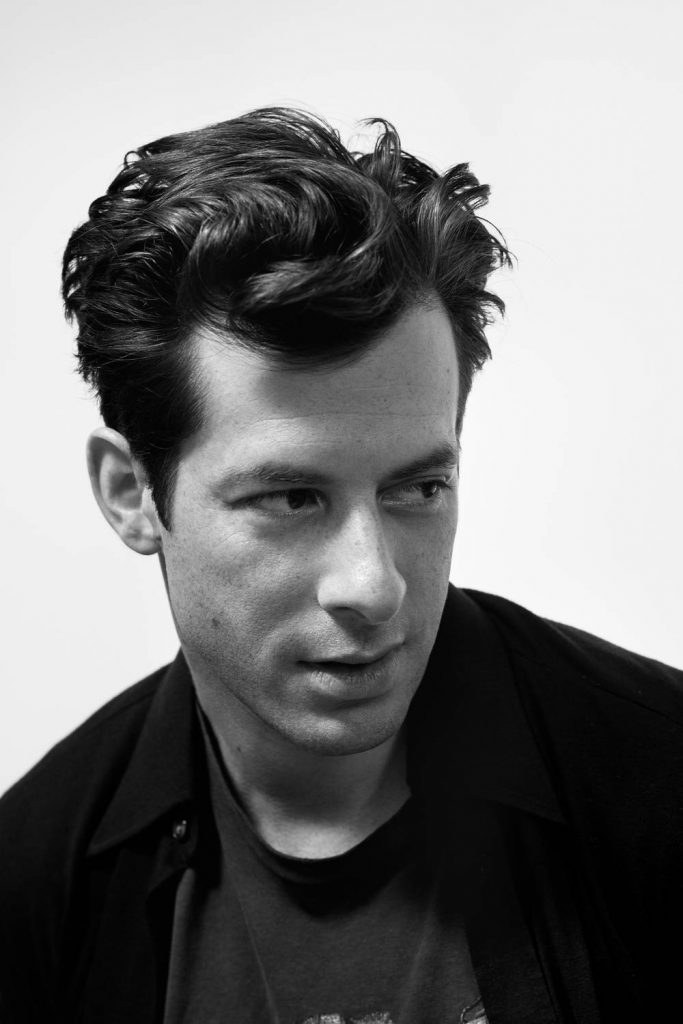
Isn’t writing music about your divorce a slippery slope? Aren’t you worried that you’ll keep reminding yourself of things you’d rather not think about anymore?
I mean. I don’t want to overstate that every single one of these lyrics is my own experience, because obviously Angel Olsen, Miley Cyrus, Ilsey, and everybody’s experiences are in these lyrics too. I think there is no way that it wasn’t going to be in the music. But yes, I guess with other people’s records I can sort of work on it for a while and then walk away and it’s like a bit more of a closed chapter. Whereas with my own records, I guess by the time you’ve written the song, finished it, come up with umpteen different track and rhythm arrangements, then you mix it, then you master it, then you go play it live — like, you do become just like fully linked to this music. But it hasn’t felt like… I don’t know, I could be totally wrong, the fact that I’m still listening to these songs every day could be completely affecting my mood, but it doesn’t feel like that. It’s sort of easy sometimes to see it as work or separate from it. And then there’s other times when it’s like, “Yeah, I’d like to listen to “Uptown Funk” instead of this song.” But it just is what it is.
I think the main thing to take away from this is that, if you’re gonna go through something like this, if there’s a chance you can get some good art out of it and step your game up, then it’s worth it. It’s like, let’s make lemonade here. But I also feel I’ve been given, I don’t know, a little bit of a gift. Not that I would want anybody else to have to actually go through a divorce or that kind of shit, but like, these are definitely the best songs I’ve ever written. Maybe it’s not the most killer grooves or the most exciting record I’ve ever made, but it’s definitely the best shit. I feel like there’s no surprise that heartbreak breeds really great music. Random Access Memories, 21, whatever it is, those are all great breakup records. So I feel like okay with it. This record is my favourite thing I’ve done — whatever ingredients it took to get there, I’ll just have to live with
The BBC ran a story recently about a new study showing that pop songs have been getting progressively sadder and angrier since the ’50s. So, there’s been more lyrics dealing with sadness and loneliness over the last six years. Why do you think this has been happening?
I’m not sure. I haven’t seen that study. I mean, it seems weird to me because all music comes from the blues. Maybe pop music started off a little bit sunnier with songs like “I Want to Hold Your Hand” and “Fun Fun Fun.” That’s what pop music was supposed to be: the opposite of sad. It was supposed to be a fun kind of relief from everyday stuff. But I think all music, all modern American music, does come from a place that’s caused me to think it used to be way happier. I’ve seen the articles about how music is super mopey right now especially, and I think that is combination of the culture we live in. Like, these are some very trying times, and sometimes that’s just the trend in music. If Khalid and Billie Eilish sound somber, then because they’re such big artists it’s going to become a trend, and everybody under them will do the same for the sake of selling records or blowing up. Artists are very influenceable; they’ll do whatever they feel they need to if they think it’ll get them put on.
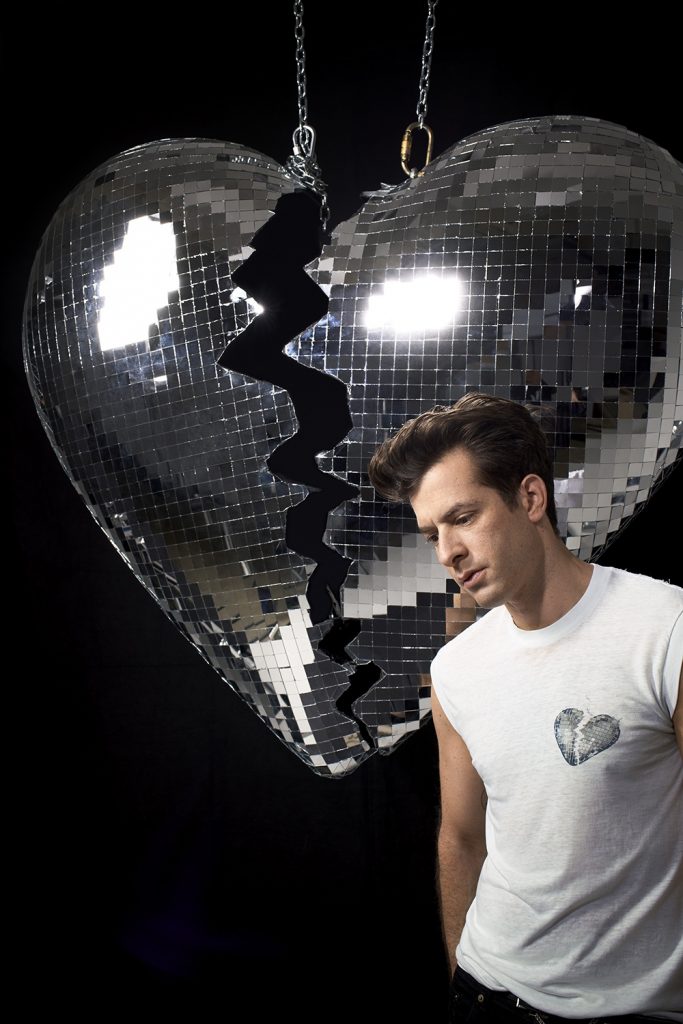
Maybe it’s just a reflection of what people want to hear at this moment.
I think it can go both ways. Like, when I get in the car and I’m feeling emo, I probably would be more likely to put on something that’s a little emo to wallow in it, rather than turning on a really exciting James Brown or Stevie Wonder song that will make me feel more up. But then again, I’ve also had so many exchanges with people who are like, “‘Uptown Funk’ is fantastic — whenever I’m feeling down, I just turn it on.” I guess we always go to different things when we’re feeling down.
You’re hot on the heels of “Uptown Funk” and “Shallow” — two of the biggest singles not only of your career, but of all time. How do you even begin to think about following that up?
All those records were just made in their own little pockets and we had no idea any of them were going to do anywhere near what they did. I’ve never been able to do anything good by trying to follow or copy something I’ve done before. It just doesn’t work. I guess the only exception is when I worked on Back to Black and Version around the same time; there’s a bunch of stuff from that time that sounds a little similar but there’s nothing that will ever be as good or important as Back to Black. And I’ll never get anything that sounds like “Locked Out of Heaven” or “Uptown Funk” again, or any of that stuff. I always follow the M.O. of just doing what you feel needs to be done, and what feels honest and genuine to you at that moment. That’s really all you can do. It’s fine if the song isn’t going to be as big as “Uptown Funk.” Probably nothing I do for the rest my life will ever be quite as big as that song. But also, if we were worried about copying something we’ve done before, we wouldn’t have made either of those two songs. So, it’s just about trying to hold onto your convictions a little bit and not trying to chase ghosts.
Well nowadays, you’re creating music meant to be played on Spotify. What’s it like making music for the streaming era? Does it change the process?
Yeah, absolutely. I mean, there’s one thing that my label always keeps telling me: keep it under 3:30. The way Spotify metrics work, if people skip the song — even if they listen to it all the way to 3:05, but then they skip the last 30 seconds — it makes your numbers on the graph go down. And also, knowing that everyone’s listening on the phone and maybe your song comes on a playlist after a DJ Snake tune, I’ve gotta make sure my shit is just as loud as other songs, even though I’m using acoustic instruments. It’s not quite the same way of making music that I’m used to. There are all these factors. I can’t bend what I do to match the music of today exactly, but I can certainly keep all these things in mind to fortify my slightly more like left field music with as much stuff as possible to make sure that it at least still holds weight around those things. It’s a little bit of an odd thing, isn’t it? But I guess artists today are kind of like, “I want to win, so I’m just gonna do all this shit.”
We’re featuring Jack White in our next issue, too. He tells me he was almost cast as the lead in A Star Is Born. How would you have felt about that?
Well, that would’ve been pretty great. It would’ve been a pretty different sound track. I mean listen, the guy’s shown time and time again that he does good shit, and he would definitely add a lot, especially on the guitar side of things, to that character. Obviously, I’m pretty grateful that they went in a different direction, just for selfish reasons. But I’m sure it would’ve been cool. I would’ve gone to see Jack White playing a grizzled rock star struggling with sobriety, for sure!
